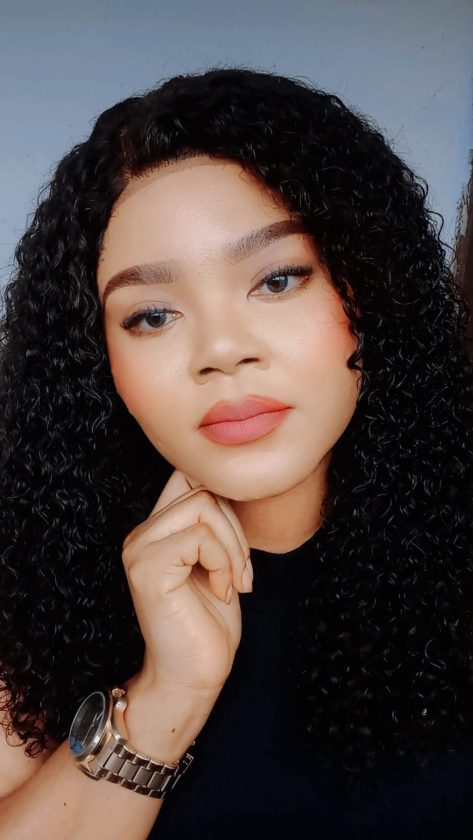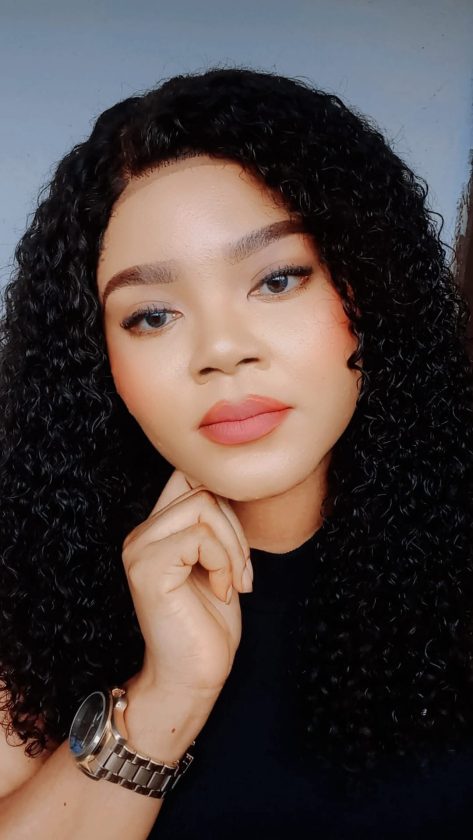By Esther Omah
The morning light crept into my room, a gentle whisper of a new day, but it was the notifications on my phone that caught my attention. Missed calls from Raymond and his friends, a cluster of alerts that sparked a flutter in my chest.
Little did I know, the day ahead would be a journey into the depths of sorrow, a test of the bonds of friendship, and a desperate search for hope in the face of overwhelming despair. I felt a surge of gladness, knowing that they had reached out, and I quickly returned the call, my fingers moving with a sense of urgency.
As Raymond’s voice came on the line, I could sense the weight of his grief, a heaviness that seemed to press upon every word. “How are you feeling?” I asked, my voice soft with concern.
His response was a sigh, a gentle exhalation of breath that seemed to carry the weight of his sorrow. “I’m still mourning,” he said, his voice cracking with emotion. “Everyone blames me for my father’s death, especially my mother. It breaks me even more.”
In that moment, I felt a pang of empathy, a deep understanding of the pain he was enduring. The loss of a loved one is never easy, but to bear the weight of blame and guilt on top of that grief seemed almost unbearable. I could imagine the tears streaming down his face, the ache in his heart, and the sense of isolation that came with feeling misunderstood.
As I listened to him, I felt a sense of compassion wash over me, a desire to offer comfort and solace in any way that I could. I knew that words were inadequate, that they could never fully capture the depth of his pain, but I wanted to be there for him, to offer a listening ear and a supportive presence.
In the silence that followed, I could sense the depth of his sorrow, the pain that seemed to seep into every pore of his being. I wanted to reach out, to offer a comforting word, a gesture of solidarity in the face of his grief. And so, I waited, letting the silence speak for itself, as I offered him a space to process his emotions, to grieve, and to heal.
He finally broke the silence hhe loss of my father, is a wound that cut deep, and I am compounded by the weight of blame and judgment from those around me, including my own mother. The sting of their words, like venomous barbs, is continously piercing my heart, leaving me feeling isolated and forsaken.
In that moment, I was struck dumb, my mind a blank canvas unable to conjure the right words of solace. The usual platitudes, the empty phrases of condolence, seemed hollow and insincere, mere Band-Aids on a gaping wound. I knew that “sorry” would be a feeble attempt to capture the depth of his sorrow, that “take heart” would ring hollow in the face of his despair.
As Raymond’s words tumbled out, a picture emerged of a world arrayed against him, a universe that seemed determined to crush his spirit. His uncles, once pillars of support, now loomed as menacing figures, their anger and blame a palpable force that threatened to consume him whole. The weight of their disapproval, coupled with the pain of his loss, had become almost unbearable, driving him to the brink of desperation.
And then, the words that chilled me to the bone: “I might just end all of this because it’s too much for me to bear.” A cry of anguish, a plea for relief from the crushing weight of his sorrow. My heart racing, I interrupted him, my voice barely above a whisper. “Raymond, calm down. You will walk through this door. Believe me, suicide is never an option.”
My words, I hoped, would be a lifeline, a fragile thread of hope in a sea of despair. I knew that I couldn’t wave a magic wand and make his pain disappear, but I could offer a listening ear, a supportive presence. And so, I stood there, a silent witness to his anguish, my words a gentle reminder that there was a way forward, no matter how dark the road ahead seemed.
As Raymond’s words cascaded forth, they were like a tempest of torment, each sentence a poignant reflection of the anguish that ravaged his soul. His voice trembled with regret, a haunting melody that echoed the depths of his pain. “I thought I was trying to stay away from my reality and console myself,” he whispered, the words hanging in the air like a mournful sigh, “not knowing that the decision would bring me more hurt and pain.”
The weight of his family’s, relative and loved one’s condemnation and judged loomed like a dark specter, casting a long shadow over his already fragile heart. Their anger and blame were palpable forces, threatening to consume him whole, like a maelstrom of emotions that seemed impossible to navigate. “Everyone wants to skin me alive,” he cried out, his voice cracking with emotion, the pain and fear etched into every syllable like a desperate plea for respite.
In that moment, he seemed to be standing alone, exposed and vulnerable, with no refuge from the storm that raged around him like a relentless tempest. The words that followed pierced my heart like a dagger, a cry of despair that seemed to shake the very foundations of his being: “I might just end all of this because it’s too much for me to bear.” The desperation in his voice was a palpable thing, a sense of hopelessness that seemed to suffocate him, like a weight that pressed upon his chest, making it hard to breathe.
As he spoke, I felt a deep sense of empathy, a connection to his pain that seemed to transcend words. I felt the weight of his sorrow, the crushing burden of his guilt and shame. And in that moment, I knew that I had to reach out to him, to offer some glimmer of hope in the darkness that surrounded him. I interrupted him, my voice a gentle whisper of reassurance. “Raymond, calm down. You will walk through this door. Believe me, suicide is never an option.”
My words were a lifeline, a fragile thread of connection in a world that seemed determined to tear him apart. I knew that I couldn’t wave a magic wand and make his pain disappear, but I could offer a listening ear, a supportive presence. And so, I held out hope that my words would be a beacon of light in the darkness, a reminder that he was not alone, that there was a way forward, no matter how treacherous the path may seem.
The urgency of the moment propelled me into action, my fingers moving with a sense of purpose as I dialed Chidi and Fred’s numbers. The phone seemed to ring out in slow motion, each tone a countdown to the moment when I would hear their voices, their words, their reassurances.
As Fred’s voice came on the line, it was laced with a mix of concern and relief, like the first gentle breeze of dawn breaking through the darkness. “That’s the reason you missed our calls this morning,” he said, his words tumbling out like a river breaking its banks. “We almost lost Raymond last night.” The phrase hung in the air like a challenge, a stark reminder of the fragility of life, the uncertainty of the future.
My heart skipped a beat, a heavy weight settling in my chest like a stone dropped into the depths of a still pond. The words “almost lost” echoed through my mind, a haunting refrain that seemed to reverberate deep within my soul. I felt a shiver run down my spine, a cold dread that seemed to seep into my very bones.
As I listened to Fred’s words, I could feel the weight of Raymond’s struggle, the pain and the fear that had gripped him. It was as if I was standing on the edge of a precipice, staring into the abyss of his despair, feeling the vertigo of his emotions. And yet, even in the midst of that darkness, there was a glimmer of hope, a sense that we had come close to losing him, but hadn’t.
In that moment, I knew that I had to hold on to that hope, to cling to it like a lifeline, and to reach out to Raymond with every fiber of my being. The phone seemed to tremble in my hand, a tangible connection to the people I cared about, a reminder that even in the darkest moments, there was always a way forward, always a chance to make a difference.
Fred continued as Chidi and I arrived at Raymond’s family house, a sense of trepidation settled over us like a shroud. The silence that greeted us was oppressive, a heavy blanket that suffocated the air from our lungs. We called out for Raymond, our voices echoing through the empty halls like a desperate plea. And then, we saw him, lying on the floor, his body limp and still, unresponsive to touch and sound.
Time seemed to freeze as we stood there, frozen in horror, our minds struggling to comprehend the scene unfolding before us. The world around us melted away, leaving only the stark reality of Raymond’s fragile form, his life hanging in the balance. We sprang into action, our movements swift and decisive as we rushed him to the hospital, our hearts pounding in our chests like drums beating out a frantic rhythm.
The hospital became a blur of beeping machines, sterile white walls, and the soft murmur of medical professionals working tirelessly to save Raymond’s life. The minutes ticked by like hours, each one a countdown to the moment when we would know his fate. And then, the news we had been praying for: Raymond was alive, his fragile thread of life still clinging to hope.
As I screamed and requested the address, my voice was barely audible, a raw expression of fear and anguish that seemed to rip from my very soul. The words tumbled out in a rush, a desperate plea for answers, for reassurance, for a lifeline to cling to in the midst of chaos.
In the aftermath, I felt lost and alone, a stranger in my own world. “No one was in the house,” I thought, the words echoing in my mind like a haunting refrain. I hadn’t even gotten to see my parents, to speak to them about my way, my feelings, my fears. I had just vanished, lost in the chaos of the moment, searching for a lifeline to cling to.
The pain of that realization was a palpable thing, a weight that pressed upon my chest.
*Omah’s Odyssey on The Southerner Newspaper




